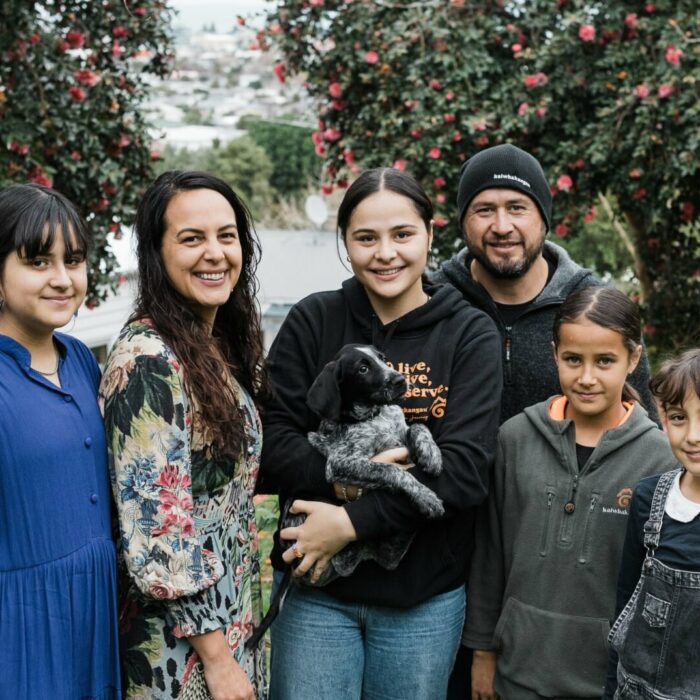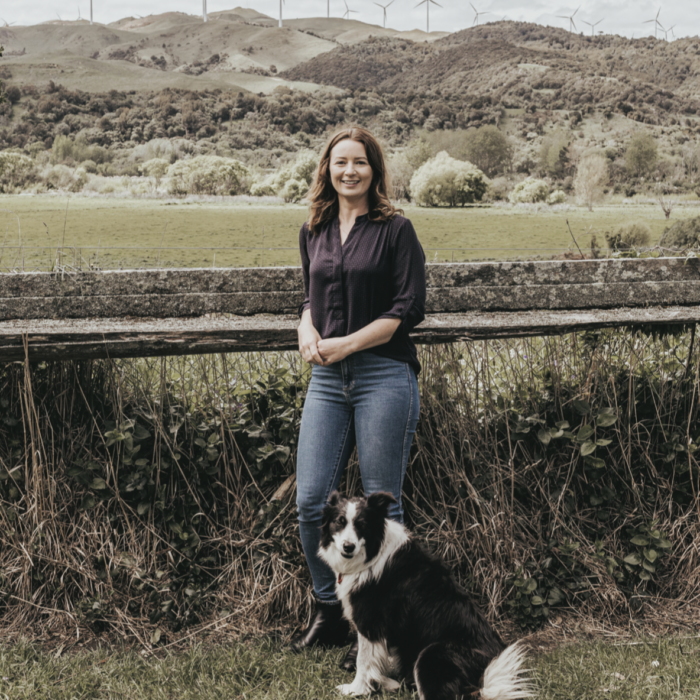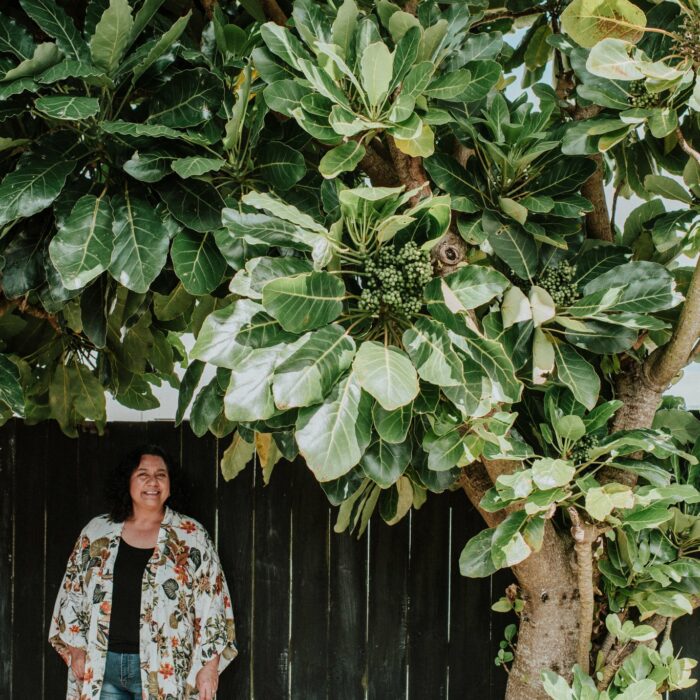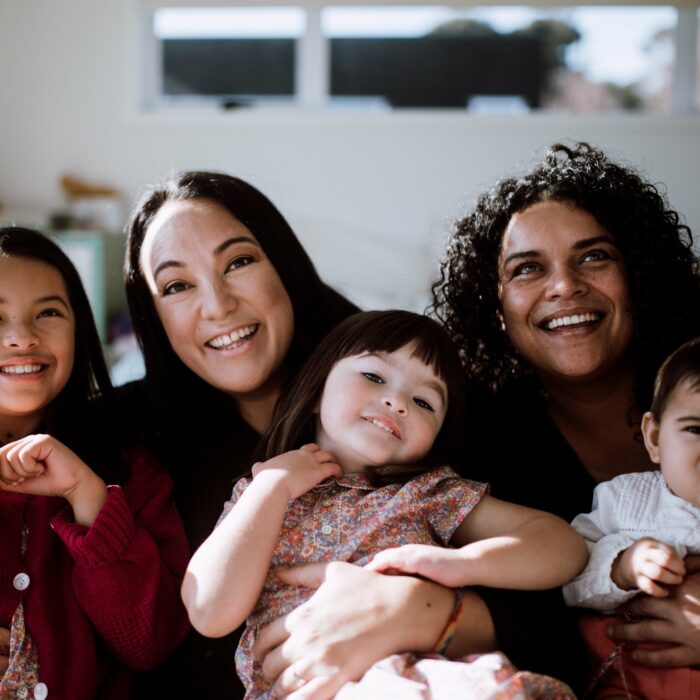
I spent most of my twenties travelling. I met my Welsh husband Joe in the Abel Tasman National Park when our respective travel companies were collaborating on a trip. Initially we continued travelling and living overseas, but then realised that we wanted to be based in New Zealand long-term. Joe and I now teach at local secondary schools. He's full-time, and I work part-time in theory.
We love what a family network can bring, and so moved back home when the kids were little. After two years living in the old workers' accommodation on my parents' farm, we bought a paddock from them and built our house five years ago. My parents still farm around us and although they're scaling back, we still help out with shifting stock, riparian planting, that sort of thing.
Joe and I have naturally formed fairly traditional roles at home. Joe is from a long line of engineers - there's nothing he can't fix or build - but he doesn't really cook much, nor does he notice if there is laundry or cleaning to be done. Fairly quickly in our relationship we worked out that if I wanted him to do something around the house, I'd have to be the one to ask him. That's worked well for us, but I must admit that initially I resented it and struggled to restrain myself from 'thanking' him when he helped with domestic duties. But it works, and so we live with the slight uncomfortableness that I am the one who sees the mess, the grubby netball kit that's needed tomorrow, the crumpled permission slip at the bottom of the bag and the ordered list of logistics that has to happen so that the ship stays sailing. I hold all that knowledge and so when I need help, I have to give the instructions.
I was challenged a few years ago by a visitor who was quite critical, saying that our domestic role modelling was harmfully traditional, with me doing most of the cooking and cleaning. Initially I felt pretty wounded by her comments and thought I needed to justify our roles. Growing up on a farm means I learned how to drive the tractors and forklift but also to feed the masses and it quickly became my job, not my brother's, to provide smoko and lunch during harvest alongside my mother, and this taught me the organisational and planning skills that I rely on so much today. In fact, I believe that we have a good balance. We play to our natural skills and strengths - which just happen to 'look' quite fifties. If you dig a bit deeper, we're actually not so traditional in our home. Joe is far more patient so, for example, he does all the sock darning, sewing and plaiting of our daughter's hair.
I get an enormous amount of support from those around me - both my parents help out a lot, with my mum getting the kids to school three days a week and doing a lot of the after-school sport runs. I also work with an amazing team of women at school, who have my back big time.
While we make it work around the household chores, the thing I do struggle with is being the holder of all the logistics around family life. Recently I was listening to a podcast about the 'mental load' that is carried disproportionately by women and parts of it really resonated with me.
I love my job and my various volunteer roles, but it's also intense; I've often got a lot of balls in the air. We have a group of mums that I go walking with and through talking to them I know that this is a common theme. We all gradually return to work, but that mental load of what's happening for the family stays often with the woman, along with finding the domestic balance.
Alongside work, there's still the day-to-day organising and coordinating, like the transport for after-school activities, the 'what's for dinner?' question. Then there's all the social planning, like remembering birthdays and presents - for both sides of the family. It all adds up. I think it's important that you've got strong communication so that when the balance tips too far you can ask for help and get it. It's a good idea for parents to acknowledge that there is an extra load to keeping a household running. Maybe we need to get better at offloading that and sharing it, but I know for me there is sometimes a reluctance because it takes too long to explain the logistics of how everything works, or who needs to go where.
My mum went back to work as a lawyer at a time when most women in our rural area stayed at home on the farm, and my parents set up one of the first community-owned rural childcare centres in Aotearoa to enable local women to re-enter paid work. We both struggle at times with balancing everything alongside running our households. My guess is this 'doing it all' mentality is pretty common. However, I think there has been a massive generational shift that can make it easier for women now. Joe's a very involved parent, and we communicate around the domestic stuff, much more than was normal for our parents' generation.
For me, downtime is key to managing an otherwise busy life. We're fortunate to live in an incredibly peaceful place, and gardening is where I can carve out space for myself. An hour in the garden and I'm a different person. When we first moved here I wanted to establish a beautiful farm garden like the one we had when I was growing up but I've let go of that now and I'm trying to put less pressure on myself. To make it work I'm realising you have to let some balls drop, so my weeds are happily thriving and I'm trying not to feel burdened. Instead I enjoy the garden as it is, because it's likely my best therapy.

This story is part of THREAD, a year-long project by Shepherdess made possible thanks to the Public Interest Journalism Fund through NZ On Air.
Related Stories
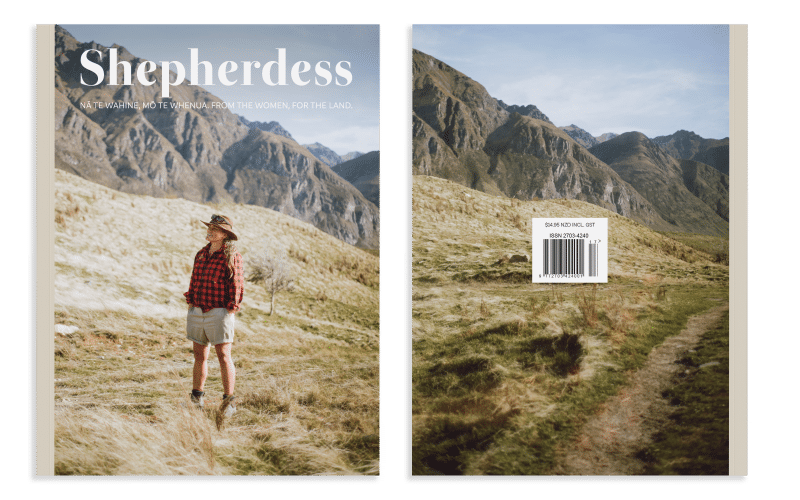
Out Now
Seventeenth Edition
Our beautiful Ngahuru Autumn 2024 Edition is out now!
